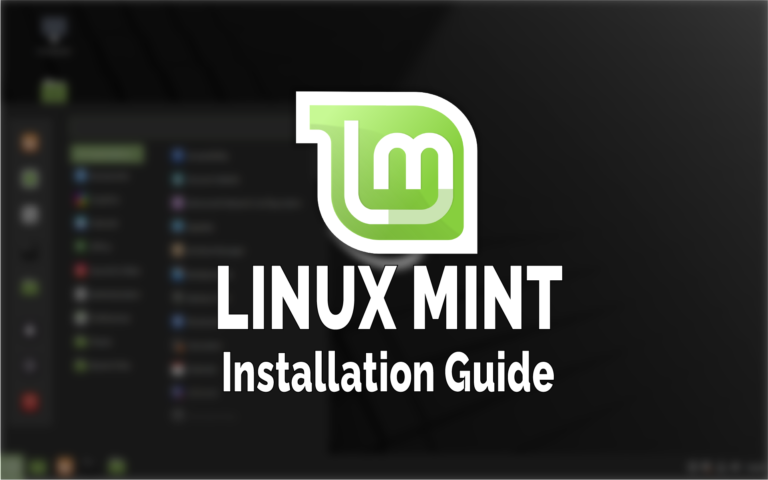This post may contain affiliate links/ads and I may earn a small commission when you click on the links/ads at no additional cost to you. As an Amazon Affiliate, I earn from qualifying purchases. Techsphinx also participates in the StationX Affiliate program. You can read my full disclaimer here.
In this post I am going to show you how to install Linux Mint 20 Ulyana.
Linux Mint is a popular Linux distro for beginners, especially for those who came from Windows background. It is based on Ubuntu and Debian and provides a decent number of packages with a great software manager.
It is a powerful OS with a modern design which makes it very easy to use. Unlike some other Linux distros, Mint also comes with full multimedia support.
Pre-Requisites to install Linux Mint
- Minimum 2 GB RAM
- Minimum 20 GB free hard disk space
- Active Internet Connection
- 4GB USB drive to create a bootable medium (Only if you want to install OS on Main hardware)
- Virtualization software like VirtualBox or VMware (Only if you want to install Linux Mint as a virtual machine)
Steps to Install Linux Mint
Linux Mint is pretty easy to install on both main hardware and as a virtual machine, thanks to its simple and easy to use the graphical installer.
However, if you’re a beginner to Linux, then I recommend you to install Linux Mint as a virtual machine. Installing Linux on Main hardware sometimes cause issues, especially when your system is primarily made for Windows OS.
Now, let’s start by downloading Linux Mint.
Step 1: Download the ISO image
You can download Linux Mint from its official website. There are 3 different editions of available:
1. Cinnamon Edition: Featuring Cinnamon Desktop.
2. Mate Edition: Featuring Mate Desktop.
3. XFCE Edition: Featuring XFCE Desktop.
You can download any edition you want; the installation steps will be same.
In this post, I will install Linux Mint Cinnamon Edition.
Step 2: Prepare for Installation
You can install Linux Mint on the main machine or on a virtual machine. The installation procedure will be almost similar for both methods; the only difference will be the partitioning step.
If you want to install Linux Mint as your main system, then you’ll need to create a bootable medium. I have written a step-by-step guide on creating a bootable USB for Linux, in case you need any help.
Once you’ve created bootable medium, restart your system and boot the Linux Mint, then jump to the installation steps.
If you plan to install Linux Mint on VirtualBox, then first create a VirtualBox container.
1. Start VirtualBox and click on new.
2. Fill all the necessary details to create a new virtual machine.
Name: Linux Mint 20
Machine Folder: (You can change location, if you don’t have enough space on the current drive, I am leaving it as default.)
Type: Linux
Version: Ubuntu (64bit)
Memory Size: (I am giving it 4 GB, you can select according to your system)
Hard Disk: Select “Create a Virtual Hard disk now” option.
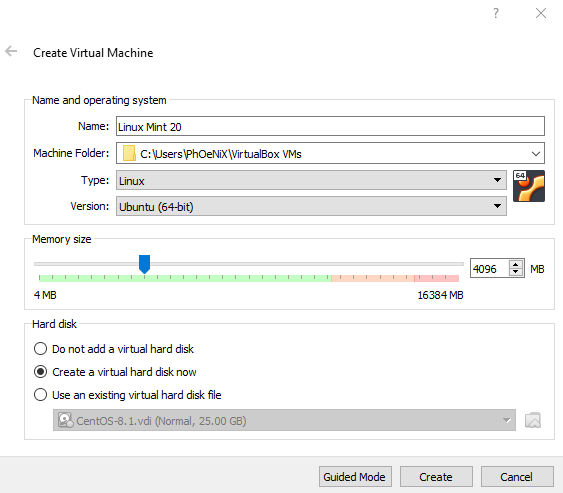
Then click on create.
3. Now, provide details to create virtual Hard disk.
File Location: Location of the virtual hard disk file.
File Size: 25 GB (I am giving it 25 GB; you can adjust according to the space available in your hard disk.)
Hard Disk File Type: VDI (VirtualBox Disk Image)
Storage on physical hard disk: Dynamically Allocated
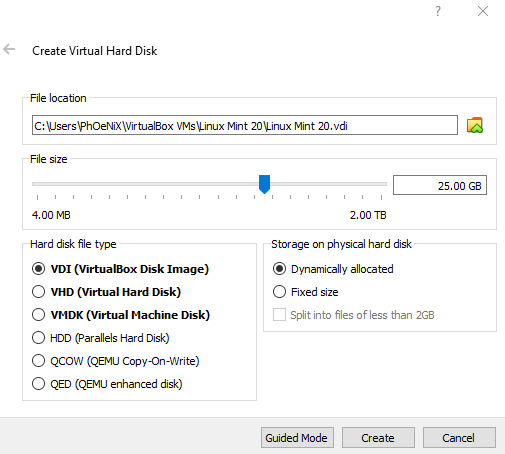
Click on create.
4. Now, start the newly created virtual machine. When it asks to select a start-up disk, click on the yellow icon and browse for the Linux Mint ISO file you downloaded earlier and click on start.
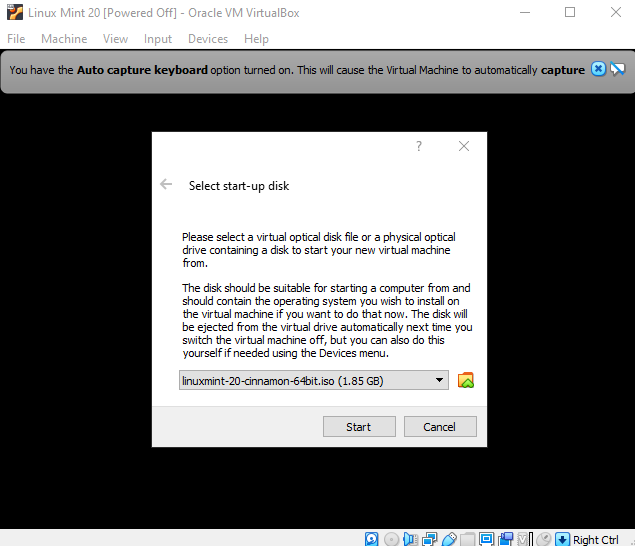
Step 3: Install Linux Mint
1. Start Linux Mint
Once booted, select “Start Linux Mint” option from Linux Mint boot menu.
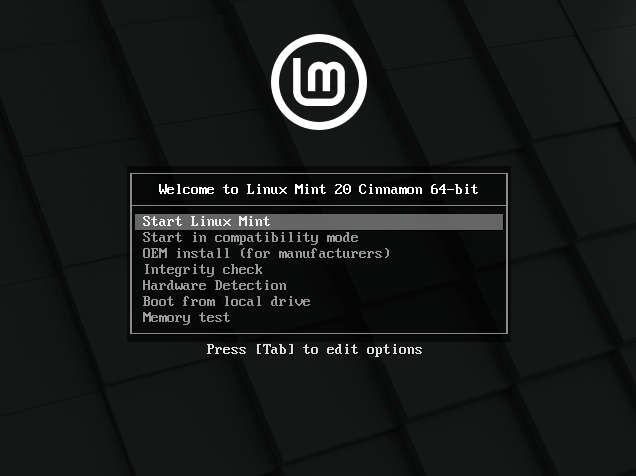
2. Select Language
Choose your preferred language and click on continue.
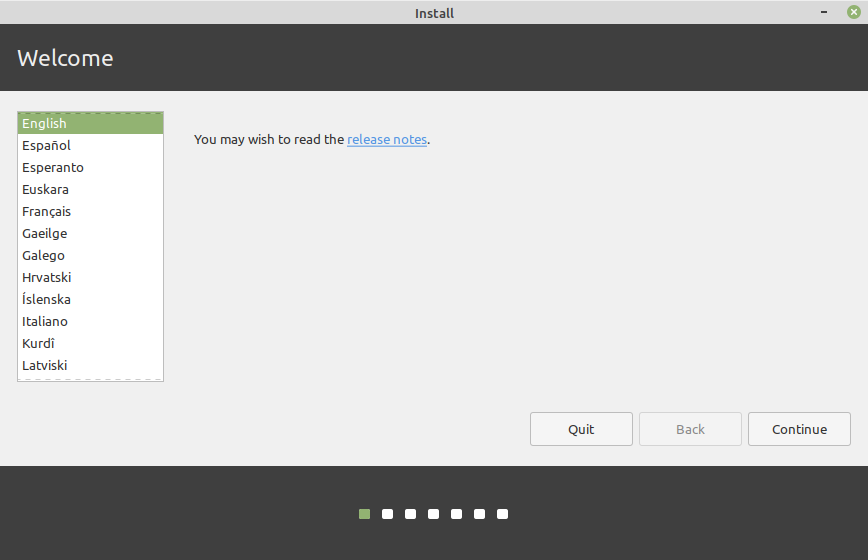
3. Keyboard Layout
Select your preferred keyboard layout and click on continue.
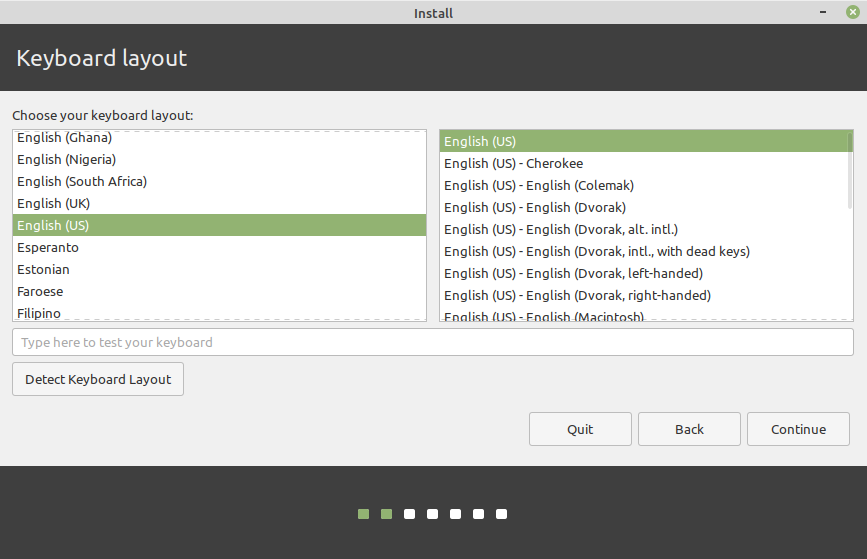
4. Install Multimedia Codecs
You can choose to install multimedia codecs for better playback of videos and website rendering.
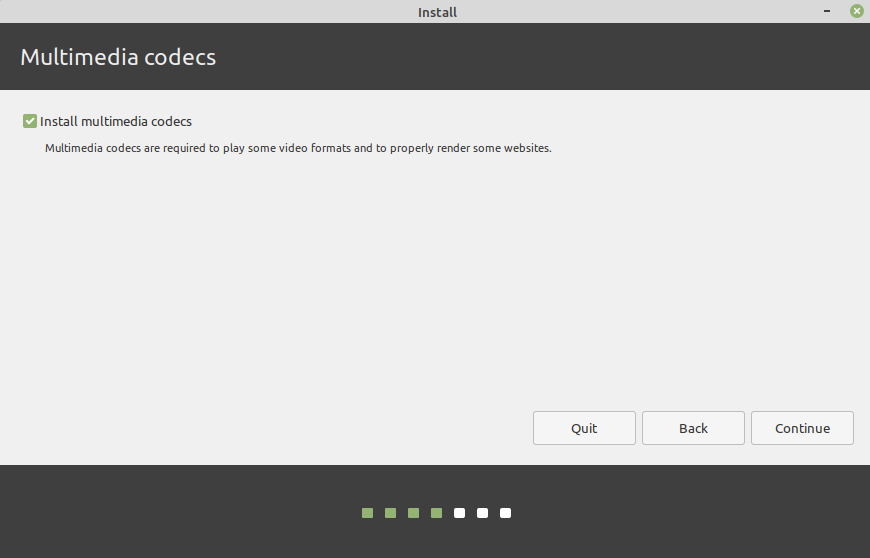
5. Installation Type
This step will be different depending on where you plan to install Linux Mint.
If you are installing Linux Mint on VirtualBox, then you can choose the “Erase Everything” option to install Linux Mint. You’ll not lose any data it is installed on the virtual hard disk you created earlier.
If you plan to install Linux Mint on main hardware, then you may have to choose “Something Else” option and create partitions manually. Selecting “Erase everything” option here will lead to loss of data and even the operating system that is already installed.
However, if you are installing Linux Mint on a fresh machine (with no data or OS installed), then you can choose “Erase everything” option.
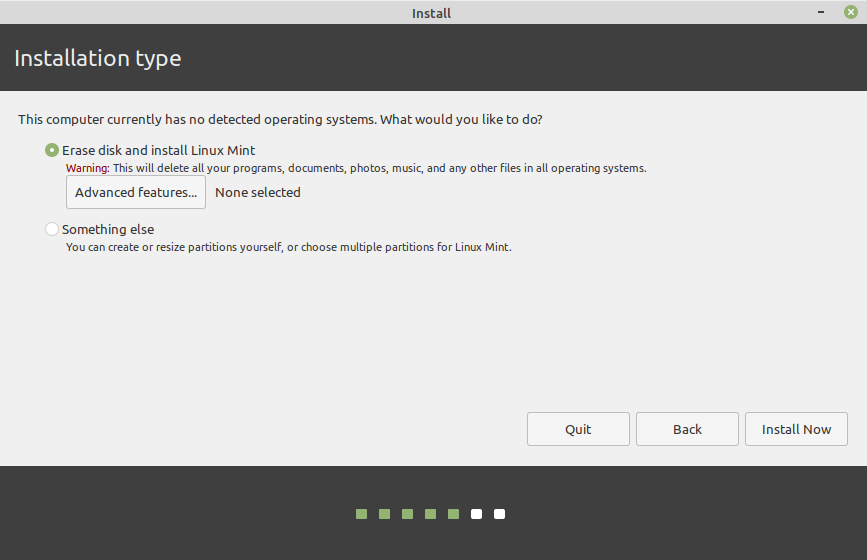
I am installing it on VirtualBox, therefore I am selecting the “Erase Everything” option.
6. Write Changes to Disk
Confirm your partition changes and click on continue. If you want to change something, then click on “Go back” and make necessary changes.

7. Select Location
Select your location and click on continue.
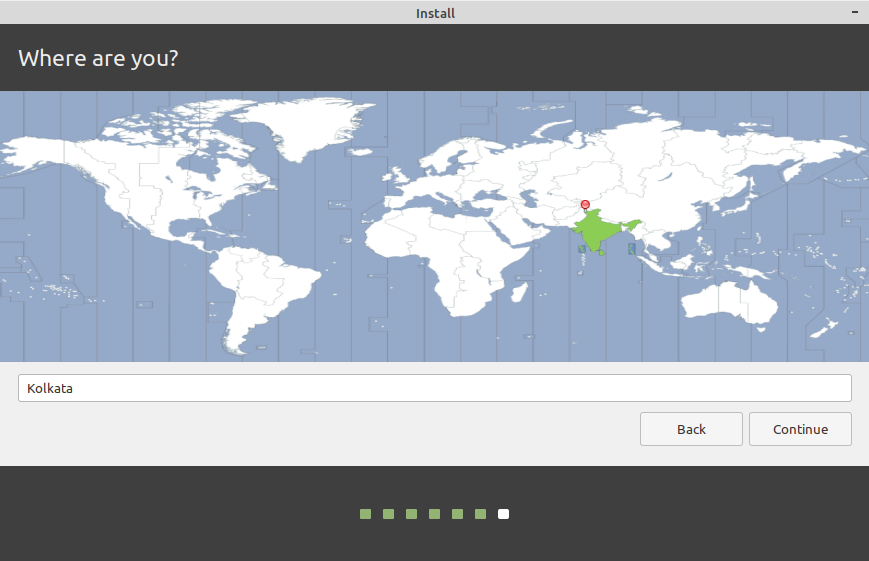
8. Set Up User and Password
Fill all the necessary details to set up a user account and password then click on continue.
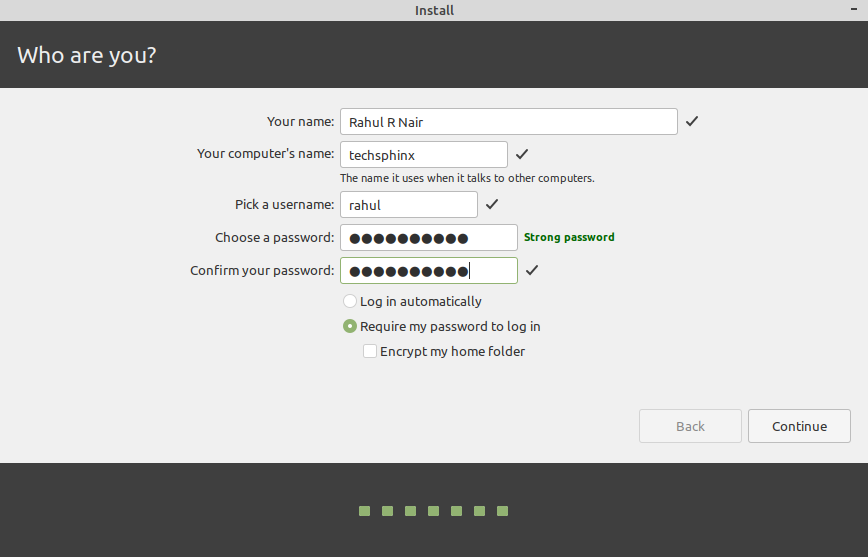
9. Wait for installation to Finish
After setting up user, Linux mint installation will commence. Wait patiently for the installation to finish.
10. Installation Completed
Once, installation is completed, you’ll be prompted with the option to restart the system.

If you prefer to continue testing Linux mint, then you can do so by clicking on “Continue Testing” option. However, any changes you make will not be saved.
11. Login to Linux Mint
After restart, you’ll be greeted with Linux Mint login screen.
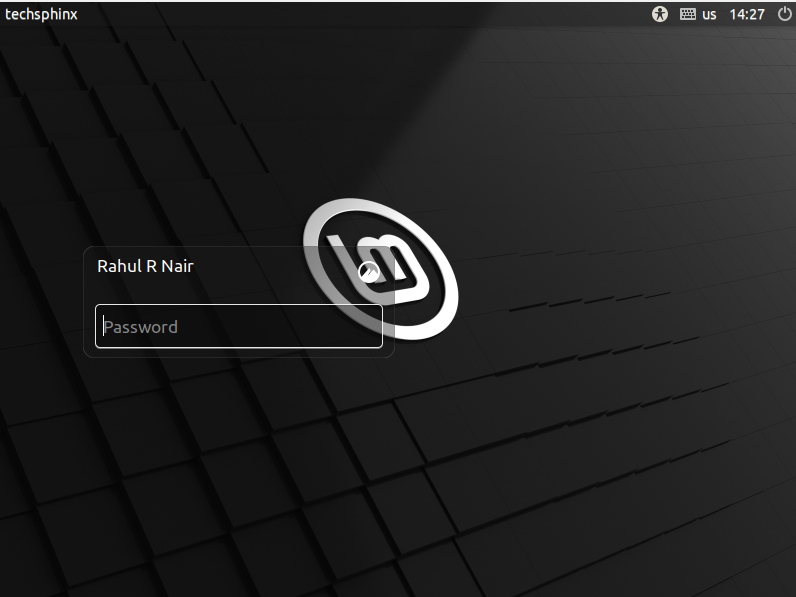
Enter username and password you created earlier to login to desktop.
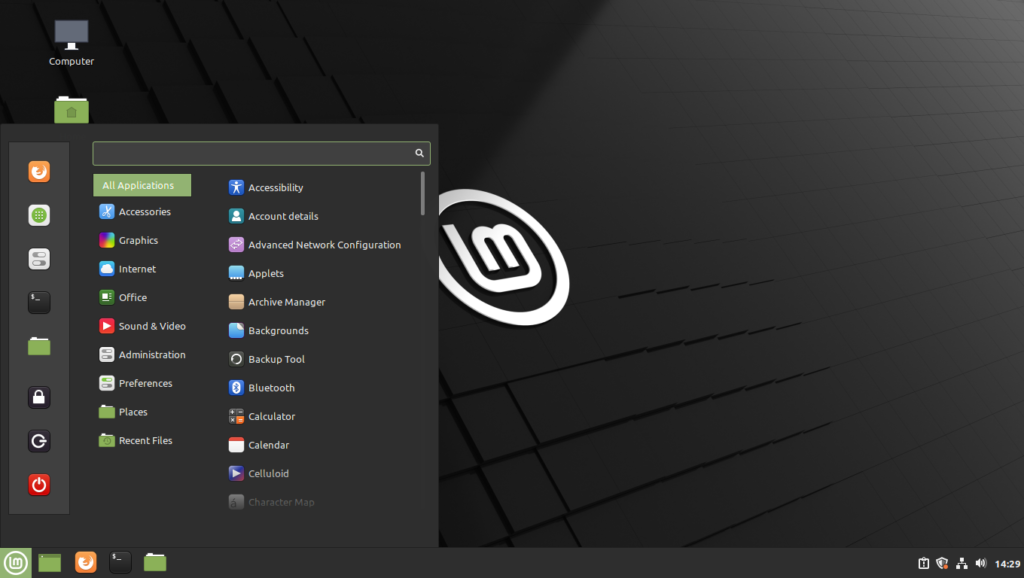
Enjoy Linux Mint
I hope this tutorial helped you to install Linux Mint 20 without any issues, if you encountered any problems then you can comment below.
If you like this post, then follow Techsphinx on Facebook and Twitter for more reviews, tricks, tips and tutorials.
This article needs update or correction? Report the issue here so I can update it.
